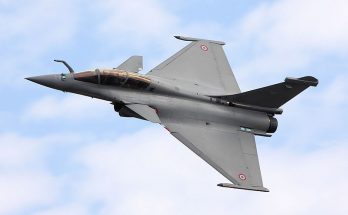
The Russian Caspian Flotilla has received the Bal coastal defense missile system.
In a statement on Thursday, the press office of the Russian Southern Military District said, “The first Bal coastal defense missile system has entered service with the Caspian Flotilla. Its official handover has taken place in the Republic of Dagestan.” The Southern Military District includes in its structure the flotilla, which is responsible for the Caspian Sea.
The press service trumpeted the importance of the Bal system to improving coastal defense in the Caspian area, noting, “Most of its flight time, a missile flies over the sea surface, which makes it possible to save munitions and complicates its interception and destruction by anti-missile defense capabilities. One Bal launcher is capable of firing a salvo of over 50 missiles in no time.”
Bal missile launchers are based on the mobile MZKT-7930 wheeled chassis, enabling them to reposition. Data from Rosoboronexport, Russia’s state arms export agency, indicates that the launchers can operate as far as 10 kilometers from the coast line, and up to 1 kilometer in altitude above sea level.
A typical system comprises four launcher vehicles, each with eight Kh-35 anti-ship missiles. The unit also comes with transporter vehicles, command vehicles, and mobile radars that can track dozens of targets in several different modes.
The Bal system has a nominal coverage range of up to 260 kilometers. As the statement noted, the systems were handed over in Dagestan and, if based around Kaspiysk – where the flotilla’s headquarters are being relocated to, away from Astrakhan – a significant portion of the Caspian Sea can be covered by the system.
Military markets analyst, covering Eurasia, Middle East, and Africa.




